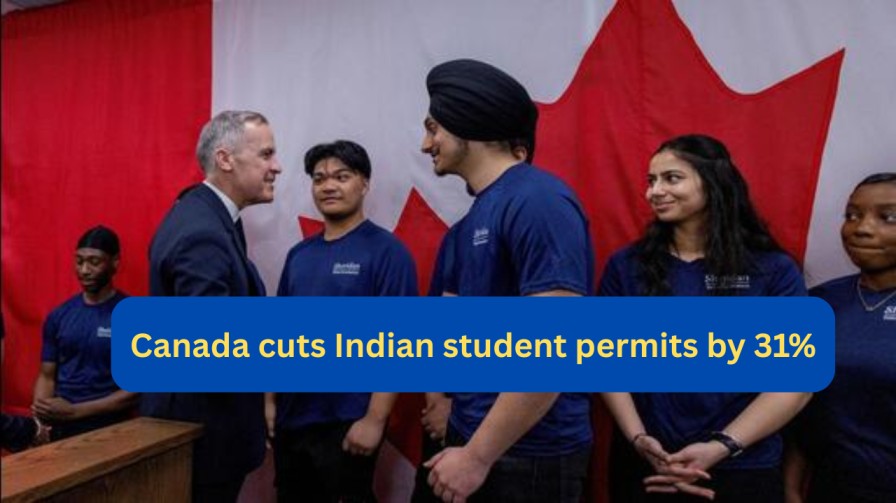Canada Reduces Indian Student Permits by 31% in 2025– Canada’s decision to cut back on the number of study permits granted to international students, particularly from India, has raised some eyebrows. The numbers speak for themselves: in the first quarter of 2025, Canada issued only 30,640 study permits to Indian students, a sharp decline of about 31% compared to the 44,295 permits issued in the same period last year. Overall, the country issued 96,015 study permits from January to March 2025, down from 1,21,070 permits in 2024.
This is part of an ongoing trend that began in late 2023, when Canada started slowing down the inflow of international students. The Canadian government has been aiming to manage the pressure on resources like housing and infrastructure, which some officials attribute to record immigration levels. After securing his party’s victory in the April 28 Federal election, Prime Minister Mark Carney made it clear that the country intends to keep the proportion of temporary residents—students and foreign workers—under 5% of the population by 2027.

In fact, Canada’s commitment to reducing the number of study permits isn’t just a short-term shift. According to data from Immigration, Refugees, and Citizenship Canada (IRCC), the country issued 681,155 study permits in 2023, with Indian students accounting for 278,045 of those. But by 2024, those numbers had dropped significantly, with total permits falling to 516,275 and Indian students dropping to 188,465.
For 2025, the Canadian government has set a cap of 437,000 study permits, a reduction from the 485,000 target for 2024. This “stabilizing” figure will be maintained for 2026 as well. The change in policy follows a series of measures that Canada began implementing in late 2023. For example, starting January 2024, applicants for new study permits have been required to show they have CA$ 20,635 (roughly Rs. 12.7 lakh) in available funds, up from the previous CA$ 10,000 (about Rs. 6.14 lakh).
Moreover, from December 2023, designated learning institutions (DLIs) were mandated to verify the acceptance letters of all applicants through the IRCC, ensuring tighter control over the admissions process.
It’s clear that the Canadian government’s stance on international students is evolving, and it remains to be seen how these changes will impact future enrollment from countries like India. While these measures might alleviate some of the strain on local resources, they could also affect the dreams of many aspiring students looking for opportunities abroad.